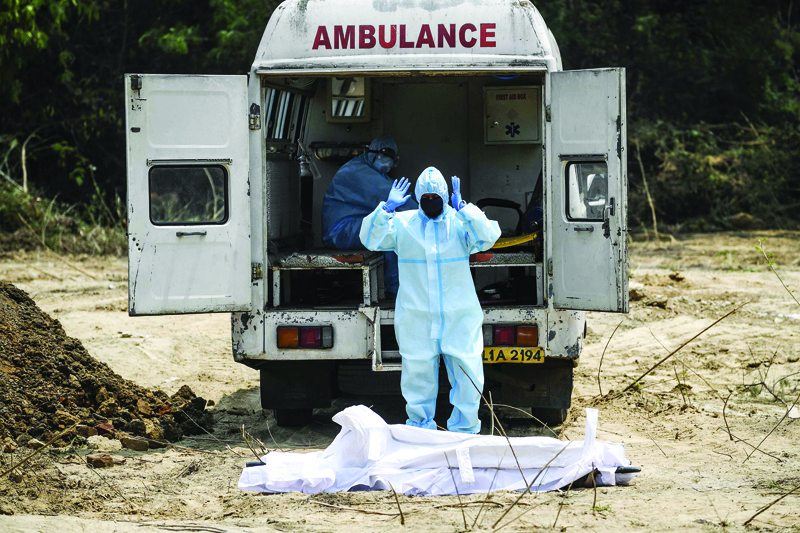
BERLIN: European countries are working to find a balance in how far to ease coronavirus lockdowns, with Germany enforcing mandatory masks in all shops from yesterday, as the crushing global economic cost of the pandemic becomes clearer. Excitement over moves towards normality is being tempered by fear of fresh outbreaks of a disease that has already killed 214,000 people worldwide. Even a gradual return to everyday activity is "risky", warned French Prime Minister Edouard Philippe, despite a downward trend in virus deaths in hard-hit European countries.
From yesterday in Germany, masks will be needed to enter shops, which began to open last week after the government declared the outbreak under control. Nose and mouth coverings are already compulsory on buses, trains and trams. "We all need to take care that we don't end up with more infections," said Lothar Wieler, president of Berlin's Robert Koch Institute. Forecasts warn of the worst global recession in a century, with demand for goods gutted, and travel and tourism hammered.
British Airways became the latest airline to sound the alarm, saying it may have to cut its workforce by a third, while big banks are reporting deep falls in quarterly profit. In Lebanon there were more immediate signs of economic crisis, with protesters confronting soldiers in defiance of a nationwide lockdown, complaining they could no longer feed their families. And with warnings mounting of a meat shortage in the US, the White House said President Donald Trump would sign an executive order compelling meat-packing plants to stay open, despite a string of coronavirus deaths in the industry.
The United States has reported its millionth coronavirus case, and at over 58,000 the country's COVID-19 death toll is by far the world's highest - surpassing the number of Americans killed in the Vietnam war. Italy, Spain and France have been the worst affected European countries, with each reporting more than 23,000 deaths. Nations from Russia to Nigeria also plan to ease lockdown measures, despite warnings from experts of a second wave of contagion if restrictions are lifted too hastily.
More than three million people worldwide are known to have caught the respiratory disease that first emerged in China in December. China's outbreak appears to be under control with no new deaths reported for two weeks straight and confirmed fatalities at around 4,600 - although much doubt has been cast on these figures' accuracy. Chinese state media said yesterday that the top legislature will next month hold its annual meeting, which had been postponed for the first time in decades due to the virus.
Scientists are scrambling to develop treatments and a vaccine, with myriad studies under way -including one from the US Department of Homeland Security into how ultraviolet radiation destroys the virus. Trump raised eyebrows last week when he asked whether light could become a medical treatment. While that research has not yet been published, people in Indonesia are soaking up rays in the hope that the tropical country's plentiful sunshine will ward off the disease. Hundreds of New Yorkers were able to access walk-in virus and antibody tests for the first time on Tuesday, even without serious symptoms or underlying health issues. - AFP










